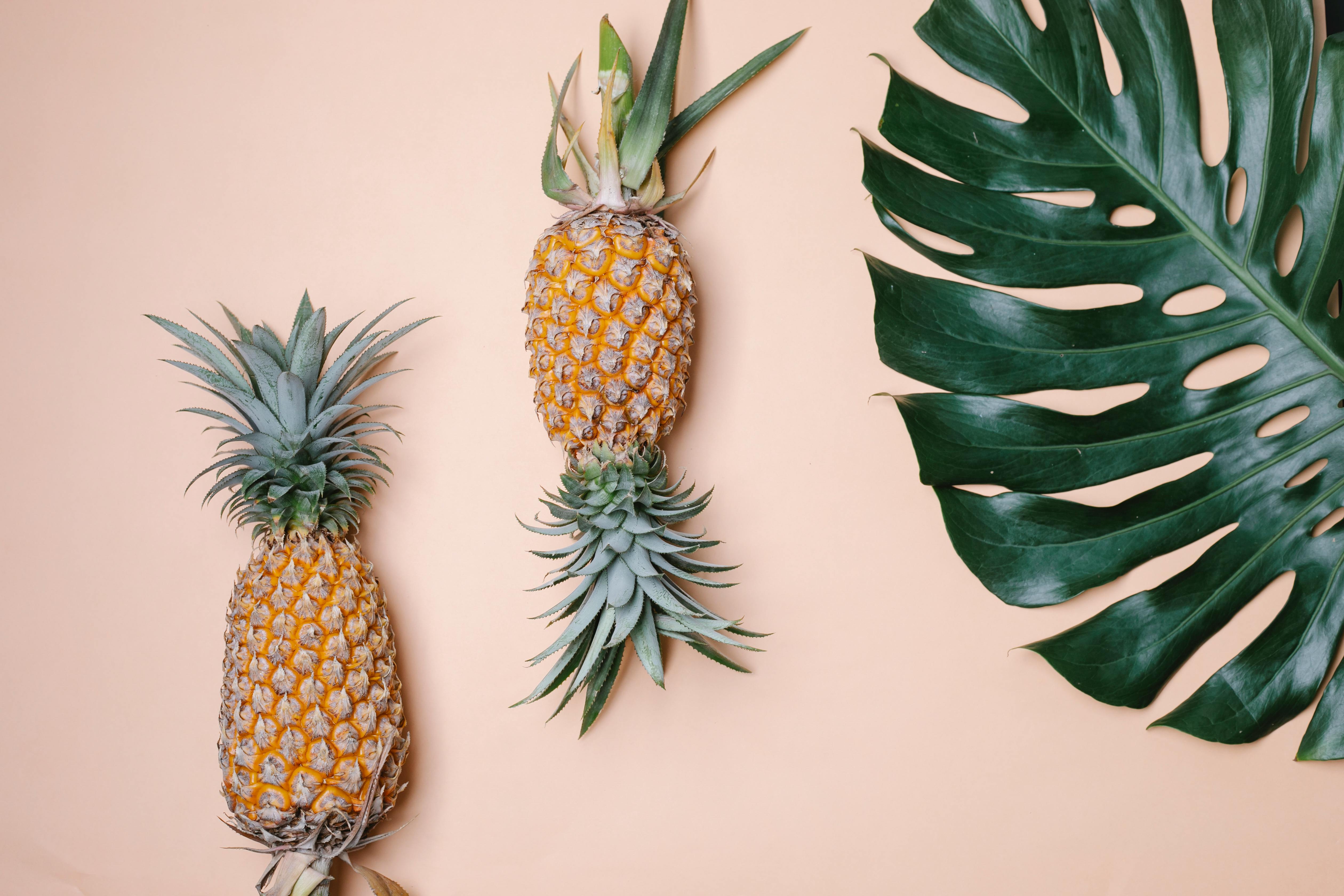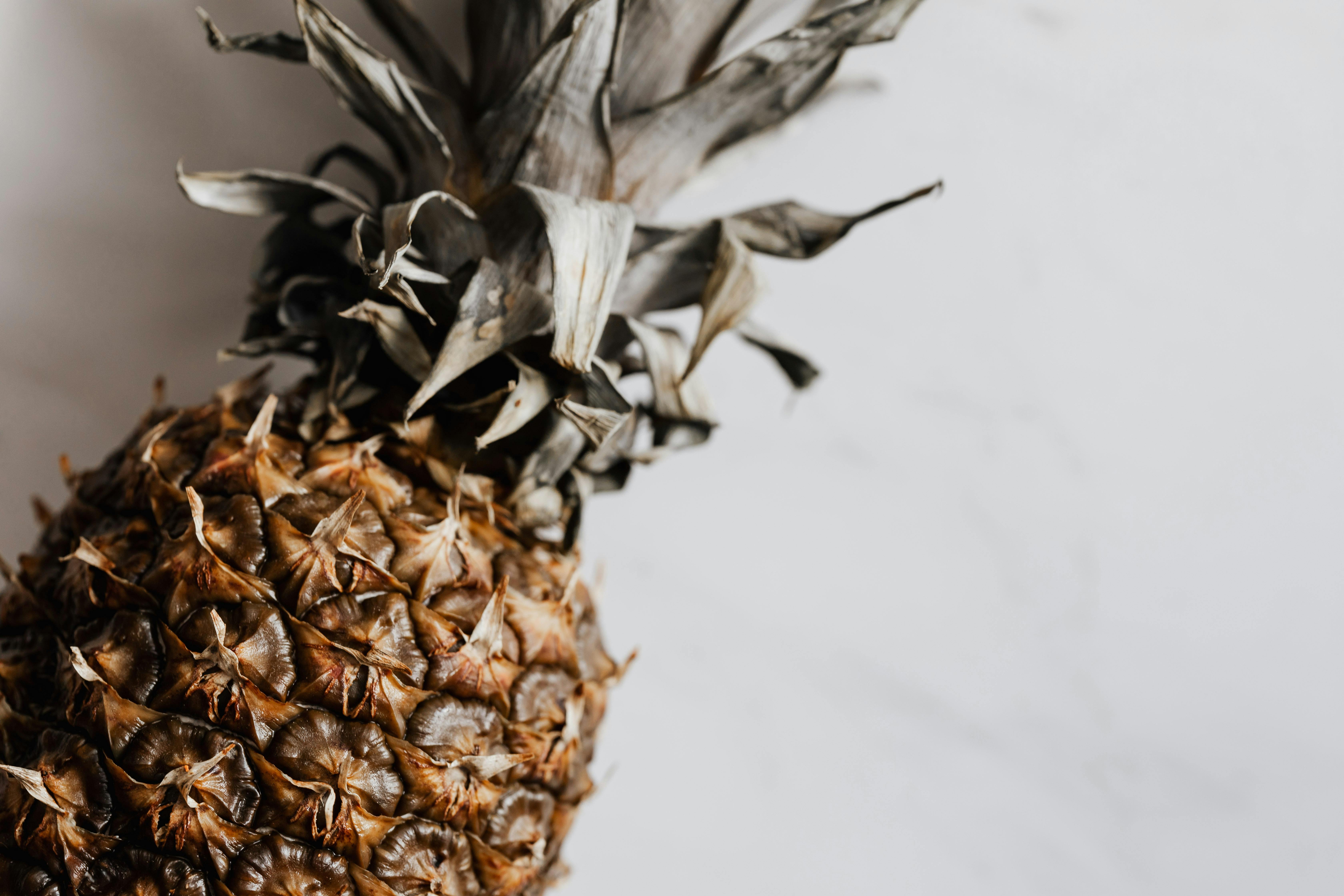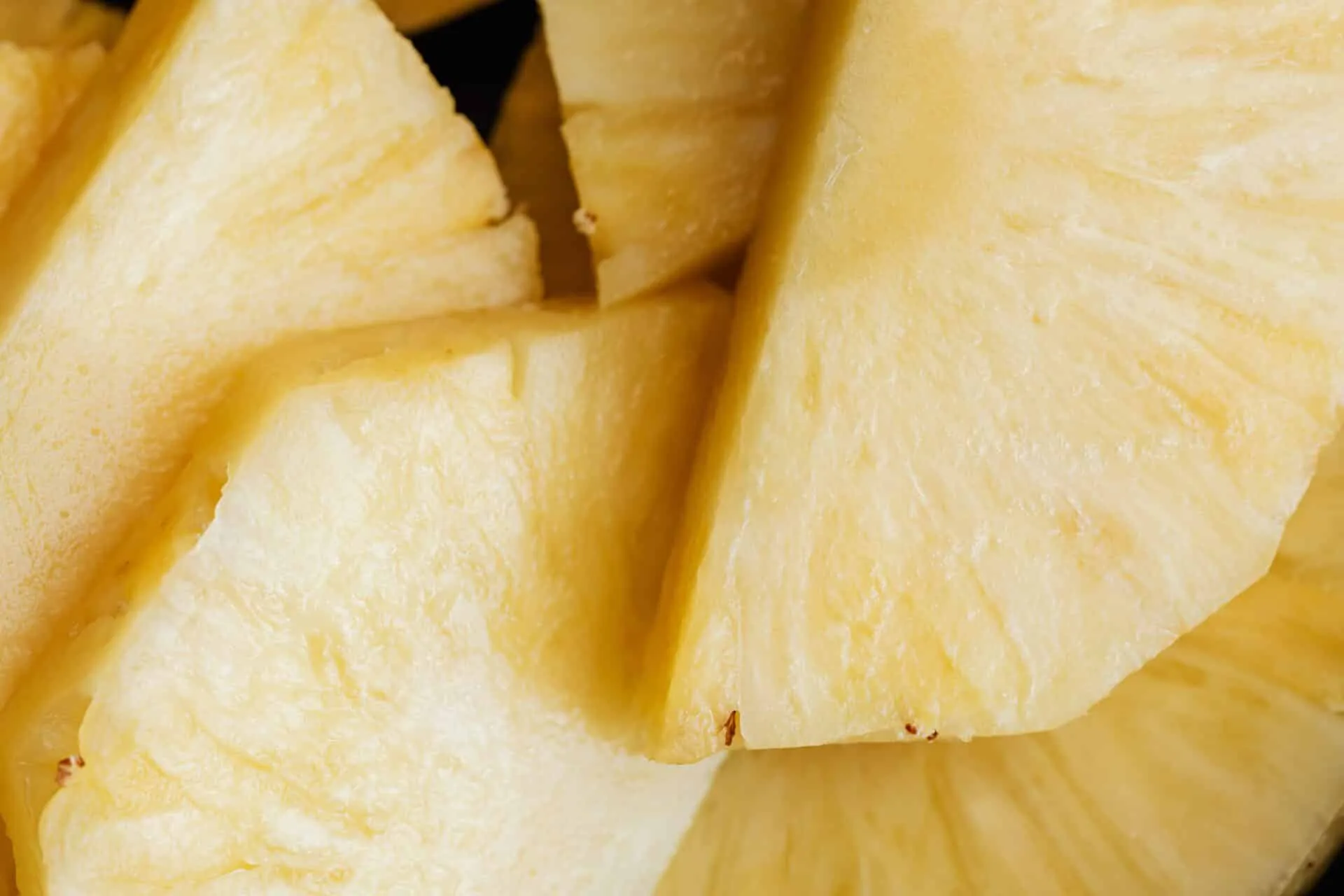Rabbits are one of the most popular pets, and they are known for their friendly and gentle nature. Many people who own rabbits want to know if it is safe for them to feed their furry friends pineapples. The answer is yes; rabbits can eat pineapple in moderation. However, there are some important points that must be kept in mind when feeding your rabbit pineapple. This article will discuss the potential benefits and risks of feeding your rabbit pineapple, as well as the correct way to offer it.Yes, rabbits can eat pineapple. Pineapple is a safe and healthy treat for rabbits. It should be fed in moderation and the core and skin should be removed first.
What Do Rabbits Eat?
Rabbits are herbivores, meaning they eat plant-based food. A balanced diet for a rabbit includes hay, fresh vegetables, and a small amount of pellets. Hay should make up the majority of a rabbit’s diet, as it provides essential fiber which helps support healthy digestion. Fresh vegetables can be offered in moderation as treats and should include items such as leafy greens, carrots, and other vegetables. Pellets can also be offered in small amounts but should not replace hay or fresh vegetables in the diet.
Rabbits are grazers by nature and need access to hay throughout the day. The best type of hay to feed rabbits is timothy hay or oat hay. Alfalfa hay is okay to offer in small amounts but should not replace timothy or oat hay due to its higher calorie content. Hay should be offered free-choice so rabbits can graze throughout the day as they would in the wild.
Vegetables are an important part of a rabbit’s diet and provide essential vitamins and minerals for optimal health. Offer dark leafy greens such as romaine lettuce, kale, collard greens, and spinach on a daily basis for maximum nutrition. Other vegetables such as carrots, bell peppers, broccoli, celery, Brussels sprouts can also be offered occasionally.
Pellets should only make up about 10% of a rabbit’s diet and should be limited to 1/8 cup per five pounds of body weight per day. Pellets that contain alfalfa are not recommended for adult rabbits due to their high calorie content.
In addition to hay, fresh vegetables, and pellets, rabbits may also enjoy occasional treats such as fruits (in moderation) or herbs like parsley or cilantro. Overall it’s important that rabbits have access to fresh Timothy or oat hay on a daily basis with fresh vegetables offered several times per week.
Is Pineapple Good for Rabbits?
Pineapple is a juicy and sweet tropical fruit, and it can be a healthy treat for many animals, including rabbits. Rabbits can eat pineapple in small amounts as part of a balanced diet. However, there are some precautions to take when giving your rabbit pineapple.
Pineapple is an excellent source of vitamin C, which is essential for rabbits since they cannot synthesize it on their own. It also provides dietary fiber, folate, copper, manganese, and potassium. When feeding your rabbit pineapple, fresh or canned varieties are the best choice; avoid sugary candied pineapple or other processed products.
Rabbits should only consume very small amounts of pineapple at a time. Too much pineapple can cause digestive upset and diarrhea due to the high sugar content. Also ensure that all parts of the pineapple are washed properly before feeding it to your rabbit to reduce the risk of food poisoning or bacterial contamination.
When introducing new foods to your rabbit’s diet, it’s important not to overfeed them. Start with a small amount of pineapple and observe how your rabbit reacts before increasing the portion size. If your rabbit develops any digestive issues or appears uncomfortable after eating pineapple, discontinue feeding it immediately and contact your veterinarian for further advice.
In conclusion, while pineapple can be an occasional treat for rabbits in small amounts as part of a balanced diet, you should always take precautions when introducing new foods into their diet and monitor their reactions carefully.
Nutritional Value of Pineapple for Rabbits
Pineapples are an excellent source of nutrition for rabbits. They are high in fiber, Vitamin C, and several minerals. Rabbit’s digestive systems can benefit from the bromelain in pineapples, which aids digestion and helps to prevent intestinal blockages. The fiber in pineapple is also beneficial for rabbits, as it helps to keep the digestive system healthy and functioning properly. Vitamin C is important for a healthy immune system and for growth and repair of tissues throughout the body. The minerals found in pineapple include magnesium, calcium, potassium, zinc and iron, which are all essential for a healthy rabbit diet.
In addition to being a good source of nutrition, pineapples can also be used as treats for rabbits. They should be fed in moderation though as too much can cause digestive upset. Fresh pineapple is best as it contains more vitamins and minerals than canned or frozen varieties. When feeding fresh pineapple to your rabbit it is important to remove any leaves or rinds first to avoid choking hazards or digestive issues.
Overall, pineapples are an excellent source of nutrition for rabbits. They provide vital vitamins and minerals that help keep them healthy and active. While they should not be eaten in excess due to their high sugar content, small amounts can make great treats that will provide your rabbit with important nutrients while still keeping them happy and satisfied!
Are Fruits Safe for Rabbits?
Fruits can be a great treat for rabbits, but there are certain kinds of fruits that should be avoided. While many types of fruits are safe for rabbits to eat, some can be toxic or can cause digestive problems. It is important to research the types of fruit that are safe for your rabbit before giving them any treats.
Most types of fresh fruits are safe for rabbits, including apples, blueberries, pears, and melons. These fruits contain vitamins and minerals that help to keep your rabbit healthy. However, they should only be given in moderation as too much sugar can lead to health issues.
A few dried fruits such as raisins and apricots are okay to give your rabbit, but they must be given in moderation as well. Too many dried fruits can lead to digestive problems as they contain more sugar than fresh fruit. Bananas and grapes are also okay in moderation as long as they are not too ripe.
Fruits like citrus and tropical fruits should be avoided due to their high acid content which can upset your rabbit’s stomach and cause diarrhea or vomiting. Citrus fruits such as lemons and limes should never be given to a rabbit under any circumstances. Additionally, rhubarb leaves should never be fed to a rabbit as they contain oxalic acid which is poisonous to them.
Overall, most fresh fruits are safe for rabbits in moderation and make great treats for them from time to time. However, it is important to research the types of fruit that you plan on giving your rabbit before doing so in order to ensure their safety and avoid potential health problems.

How Much Pineapple Can a Rabbit Eat?
Rabbits have notoriously sensitive digestive systems, so it’s important to take extra care when introducing new foods into their diet. While some rabbits may enjoy the occasional taste of pineapple, it’s important to remember that too much of this sweet fruit can cause gastrointestinal upset. As such, feeding pineapple to rabbits should be done in moderation.
Rabbits are herbivores and their diet should consist mainly of hay and a selection of fresh vegetables. While rabbits can be fed small quantities of fruit as a treat, it’s important to ensure that such treats make up no more than 10% of their total food intake.
The high sugar content found in pineapple means that it is not suitable for all rabbits and could cause excessive weight gain if fed in large amounts. It is best to feed only small amounts as an occasional treat – no more than one teaspoon per day for an average-sized adult rabbit. Pineapple should never be given as the sole source of nutrition and should always be served alongside hay and fresh vegetables.
When introducing any new food into a rabbit’s diet, it is essential to observe them carefully for any signs of adverse reactions or digestive difficulties. If your rabbit displays any symptoms such as loss of appetite, stomach pain or diarrhoea after eating pineapple, you should stop feeding them the fruit immediately and consult with your vet if necessary.
In summary, while some rabbits may enjoy eating pineapple in moderation, it is important to bear in mind that this fruit can cause gastrointestinal upset if consumed in large amounts. As such, feeding pineapple to rabbits should only be done with caution and under close supervision from owners who are aware of the potential risks involved.
Potential Risks of Feeding Pineapple to Rabbits
Rabbits can be fed a variety of different fruits, including pineapple, as part of their diet. However, there are some potential risks associated with feeding pineapple to rabbits that should be considered. Pineapple contains a high amount of sugar, which is not good for rabbits, as it can cause digestive issues and tooth decay. Additionally, pineapple can also cause an upset stomach if eaten in excess. It is important to remember that rabbits should only be given small amounts of pineapple at any one time. Pineapple should also not be fed as the sole source of nutrition for rabbits. The fruit should only be used as an occasional treat or snack and should always be accompanied by a healthy diet of hay and pellets. Furthermore, it is also important to note that the core and leaves of the fruit should never be given to rabbits as they can present a choking hazard.
Effects of Eating Too Much Pineapple on Rabbits
Eating too much pineapple can have a detrimental effect on rabbits. Pineapple contains an enzyme called bromelain that can cause digestive upset in rabbits. Eating too much pineapple can lead to diarrhea, vomiting, and abdominal pain. Rabbits are also prone to developing sores and ulcers in the mouth due to the acidic nature of pineapple. In extreme cases, consuming too much pineapple can cause gastrointestinal blockage and even death.
In addition to the physical effects of eating too much pineapple, there are also behavioral effects that may occur as a result. Eating too much pineapple may make your rabbit more aggressive or less responsive to commands or training. It can also cause your rabbit to become lethargic and uninterested in activities they typically enjoy.
For these reasons, it is important to feed your rabbit small amounts of pineapple and ensure it is part of a balanced diet. Avoid feeding your rabbit large amounts of any one food as this can lead to nutritional imbalances and other health issues. If you suspect that your rabbit has eaten too much pineapple, contact your veterinarian for advice on how best to care for them.

Conclusion
In conclusion, rabbits should not be given pineapple to eat. The high sugar content of pineapple can cause digestive issues in rabbits and potentially even lead to health problems if eaten in large quantities. While small amounts of fresh or canned pineapple may not harm your rabbit, it is best to avoid giving them this fruit. If you want to give your rabbit a treat, it is better to stick with hay, vegetables, and other fruits that are safe for rabbits.
When it comes to feeding your rabbit, it’s important to do your research and know which foods are safe and which ones can be harmful. As cute as they may be, rabbits have very sensitive digestive systems so it’s important to provide them with a healthy diet that meets their nutritional needs. Pineapple should definitely not be part of that diet!



